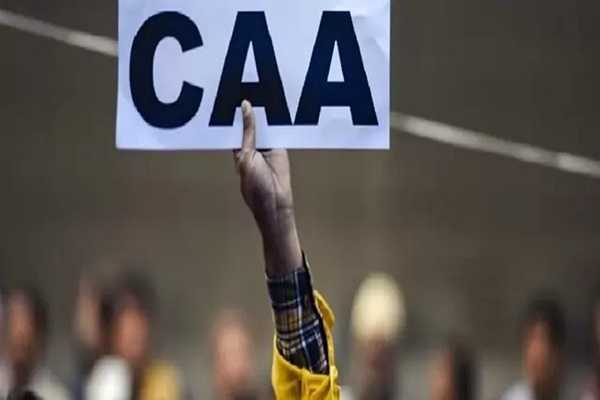As the announcement and execution of the CAA draw near, opposition lawmakers have expressed their belief that it will not be implemented in their regions.

New Delhi: Sources told BNW on Monday afternoon that the Union Home Ministry may notify the public later tonight to put the contentious Citizenship Amendment Act into effect. In December 2019, Parliament passed the CAA, which for the first time makes religion a citizenship test. Opposition politicians and chief ministers of non-BJP states fiercely opposed the bill, which was met with violent protests. During those protests, around 100 people lost their lives.
Non-Muslim immigrants from Bangladesh, Pakistan, and Afghanistan who arrived in India prior to 2015 may be granted Indian nationality by the government once it is granted. News outlet ANI was informed by an unidentified official that “the regulations are prepared and an online portal is already set up… applicants can disclose their year of entry without travel documents.”. There will be no need for any further paperwork, the official stated.
This occurs less than a month after Home Minister Amit Shah emphasized that the CAA will be put into effect prior to the April/May Lok Sabha elections. “CAA is a national act; it will undoubtedly be informed. CAA will take effect prior to the election, so there’s no need for confusion.”
Last month, Mr. Shah made an effort to downplay concerns that minority populations will be singled out by the combination of the controversial National Register of Citizens (NRC) and the Citizens Act (CAA). “Muslim brothers of ours are being incited and misled.” Citizenship by Assurance (CAA) is solely intended for individuals who arrived in India as a result of persecution in Bangladesh, Afghanistan, or Pakistan. It’s not intended to take away someone’s citizenship.”

One of the BJP’s main election promises was that the CAA would be implemented. This was made in both the 2019 Lok Sabha election and the campaigns for several state elections, with particular attention to the Bengal 2021 election, where the ruling Trinamool and the saffron party ran contentious and high-profile campaigns.
Ahead of the 2024 Lok Sabha election, Mr. Shah had attacked Chief Minister Mamata Banerjee at a rally in Bengal in December, accusing her of misleading the people.
And now that the CAA is very close to being announced and put into effect, opposition politicians—including Ms. Banerjee—have once again stated that it will not be applied in their regions.
The chief minister of Bengal claimed that the BJP, which is running for a third term in office, had brought up the matter merely to garner support for its candidacy. “The BJP has once again brought up the CAA issue in order to gain political advantage as the elections draw near. However, let me be clear: I will not permit it in Bengal as long as I live.”
MK Stalin, Ms. Banerjee’s counterpart from Tamil Nadu, was as forceful. The leader of the DMK also pledged he would not enforce the law, accusing the BJP government of acting “against communal harmony.”
Other states that rejected the CAA and passed resolutions included Kerala, Punjab, and states that were ruled by the Congress in the past and the BJP currently, such as Rajasthan and Chhattisgarh. In actuality, all NPR—the National Population Register—and NRC work was discontinued by the governments of Bengal and Kerala.
Along with passing resolutions against all three, the then-ruling Bharat Rashtra Samithi of former Chief Minister K Chandrashekar Rao called on the government to “remove all references to any religion, or to any foreign country” in Telangana, citing concerns voiced by thousands of people nationwide.
A resolution was also passed by the Madhya Pradesh government, which was then run by the Congress. Interestingly, a number of state legislators and leaders of the BJP also opposed the legislation.
The Citizenship Amendment Act, according to the government, will assist minority who fled countries with a majority of Muslims in obtaining citizenship if they did so because of religious persecution. Critics counter that it goes against the Constitution’s secular values and is intended to discriminate against Muslims.


